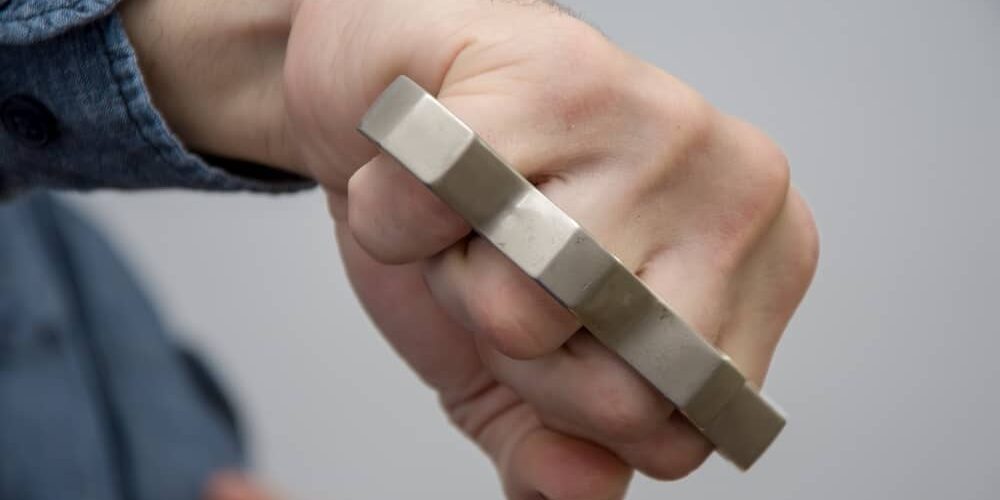If you are in custody on a Grievous Bodily Harm (GBH) charge, you must understand that you face serious accusations with significant sentencing.
The following will help you understand the charges and navigate the criminal justice system in Western Australia.
What is Grievous Bodily Harm?
According to the Criminal Code WA, grievous bodily harm is an injury that endangers or is likely to endanger the victim’s life. Additionally, it is an injury that causes or is likely to cause permanent injury to the victim. As defined by the code, these injuries may vary significantly. A severe head injury, a broken jaw, and a loss of a limb are all GBH cases.
If the victim seeks medical care and their injury symptoms improve or are resolved, the GBH charge remains unchanged. This is because partial or complete recovery from an act causing GBH cannot erase the fact that the event happened.
Examples of Grievous Bodily Harm
Under Division X X IX – Offences endangering life or health 294, grievous bodily harm examples can take many forms. Acts intended to cause grievous bodily harm include,
Unlawfully wounds or does any grievous bodily harm to any person by any means whatever; or
(2) Unlawfully attempts in any manner to strike any person with any type of projectile; or
(3) Unlawfully causes any explosive substance to explode; or
(4) Sends or delivers any explosive substance or other dangerous or harmful thing to any person; or
(5) Causes any such substance or thing to be taken or received by any person; or
(6) Puts any corrosive fluid or any destructive or explosive substance in any place; or
(7) Unlawfully casts or throws any such fluid or substance at or upon any person, or otherwise applies any such fluid or substance to the person of any person; or
(8) does any act that is likely to result in a person having a severe disease; is guilty of a crime and is liable to imprisonment for 20 years
Causing Grievous Bodily Harm
The intent behind the actions of someone charged with committing GBH must be considered. If an act intended to cause grievous bodily harm is proven, the offence carries a maximum penalty of 20 years imprisonment. However, it is possible to lower the charges to GBH without intent if you can show you did not plan on causing the victim an excessive degree of bodily damage, formally called GBH without intent.
What is the Minimum Sentence for Grievous Bodily Harm?
The minimum sentence for grievous bodily harm in Western Australia depends on the circumstances of the offence.
In specific instances, Western Australia will require the court to impose a minimum sentence. For example:
- If an adult is found guilty of an offence under section 297 or under section 294 that is committed during an aggravated home robbery, they must be sentenced to a term of at least 75% of the maximum penalty that applies to the offence. If an adult is convicted of causing GBH during an aggravated home robbery, they must receive a mandatory sentence of at least 12 months that is not suspended.
- If grievous bodily harm is caused by a juvenile in Western Australia, the court must impose a term of imprisonment or detention of at least three months that is not suspended. If a juvenile causes GBH during an aggravated home burglary, the mandated term of imprisonment or detention the court must order is at least three years, not suspended.
Mandatory Sentencing for Grievous Bodily Harm in WA
In Western Australia, parliament has issued mandatory sentencing which targets offences such as GBH. The rationale for mandatory sentencing is setting new standards in sentencing.
The mandatory sentences often include specified periods where parole is not an option. A judge hearing a case that is tabbed for mandatory sentencing is free to hand down a ruling with stricter penalties if the situation warrants.
Common Defences Are There for Grievous Bodily Harm Charges in WA
While the defence of provocation is not available to a charge of GBH, several other defence strategies are typically used for a charge of GBH. These include:
- An accident
- Self-defence or defending someone else
- The GBH was caused by someone other than the accused in the case
- An extraordinary emergency
- Defence of duress
- Identification
Can You Apply for Bail on a Grievous Bodily Harm Charge in WA?
The decisions made regarding bail for those charged with GBH are under the Bail Act of 1982. Being denied bail is NOT a foregone conclusion. The court will determine your bail status based on several factors, including:
- If you are likely to attend court
- The probability that you will commit another offence while on bail
- The likelihood that you will attempt to interfere with witnesses
- If you are a threat to the safety, welfare, or property of another person
- If you obstruct the course of justice
If you are charged with GBH while on bail for another charge, you will not be able to get bail for the GBH charge.
How Will a Lawyer Help Me With a Grievous Bodily Harm Charge?
Experienced criminal lawyers understand what is needed to get you the best possible outcome regardless of the charges. In the case of GBH, there may be a significant emphasis on medical records about the victim’s injuries. Expert examination of the records may result in reduced charges. There may also be plausible defences to your case. Additionally, your defence lawyer can assist you with your bail application. Above all, your lawyer will ensure your rights are protected and that you receive a fair trial.
Frequently Asked Questions
- When does assault turn into a grievous bodily harm charge?
An assault crosses the line and becomes grievous bodily harm when the act in question goes so far as to endanger or is likely to endanger life or will likely cause permanent injury to health. However, the injury does not have to be permanent to be considered GBH. The statute that covers such offences includes the Criminal Code Act and the Road Traffic Act 1974.
- Is grievous bodily harm a severe crime?
In Western Australia, grievous bodily harm is the most severe crime next to taking another person’s life. The state has mandatory sentencing, and a conviction can lead to lengthy sentencing depending on the circumstances.
- If the victim gets medical treatment and fully recovers, is the GBH charge downgraded?
No, the fact that the victim recovered is not a viable defence because the actions taken will still be considered as likely to endanger life or likely to cause permanent injury to health.
- Can a driver be charged with grievous bodily harm if they drive carelessly, causing an accident resulting in severe injuries?
Yes, it is possible to receive charges of GBH because of careless driving. Section 59BA of the Road Traffic Act WA states that a driver commits an offence when he or she is: “involved in an incident occasioning the death of, or grievous bodily harm or bodily harm to, another person and the driver was, at the time of the incident, driving the motor vehicle without due care and attention.” Notably, intent does not need to be proven with careless driving charges.
Facing charges of grievous bodily harm can have life-altering consequences, which is why you should NOT go to trial alone. Even though the burden of proof of your actions and the intent lies with the prosecution, you need an experienced legal team to ensure you will receive justice. Reach out to WN Legal’s team of assault lawyers Perth and get the expert advice you need when facing such charges. Our boutique legal practice will help ensure you get the best possible outcome in your situation.
**Please Note**
The material presented in this post is for informational use only. It does not constitute binding legal advice and should not be a replacement for a consultation with a legal professional








